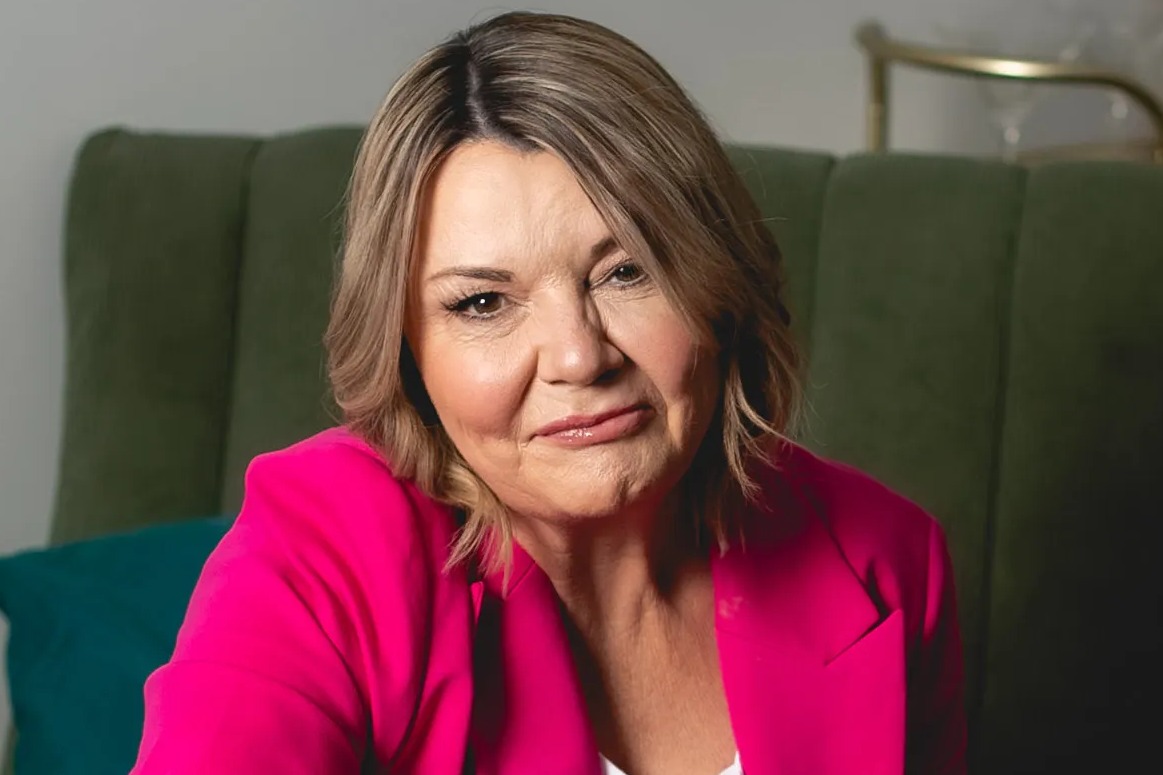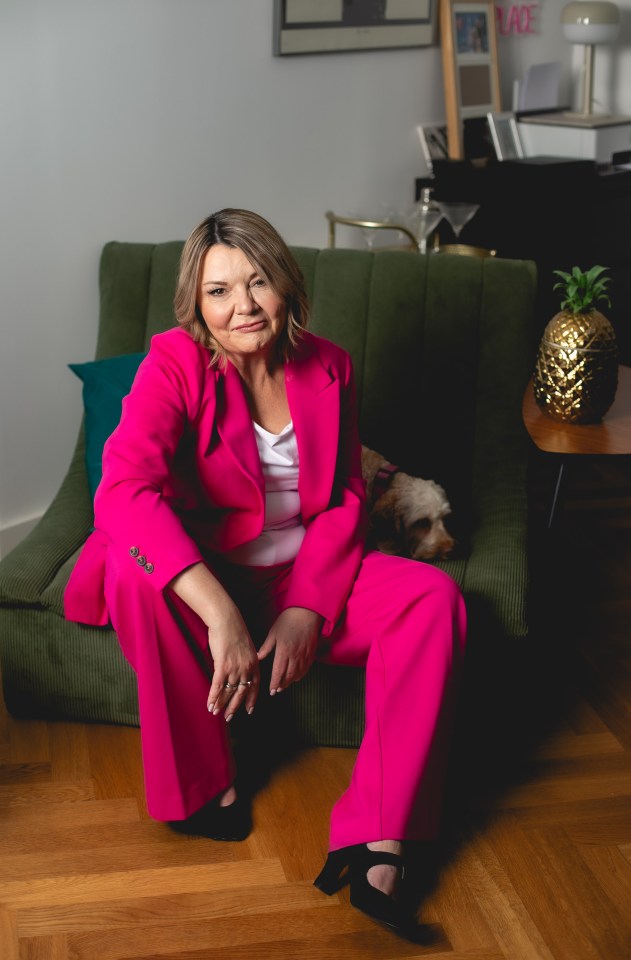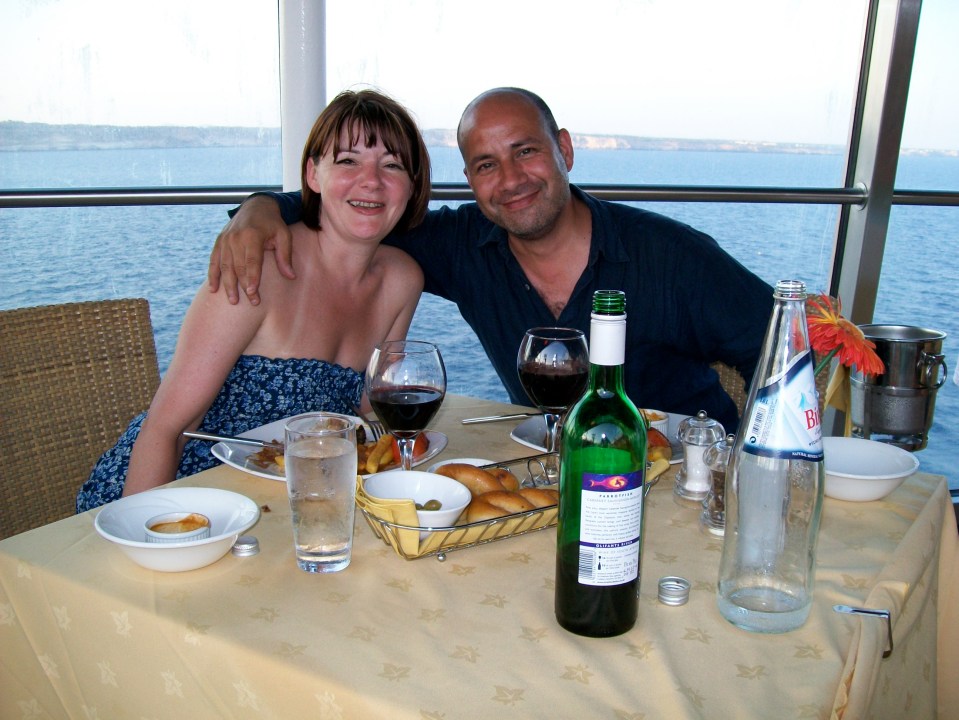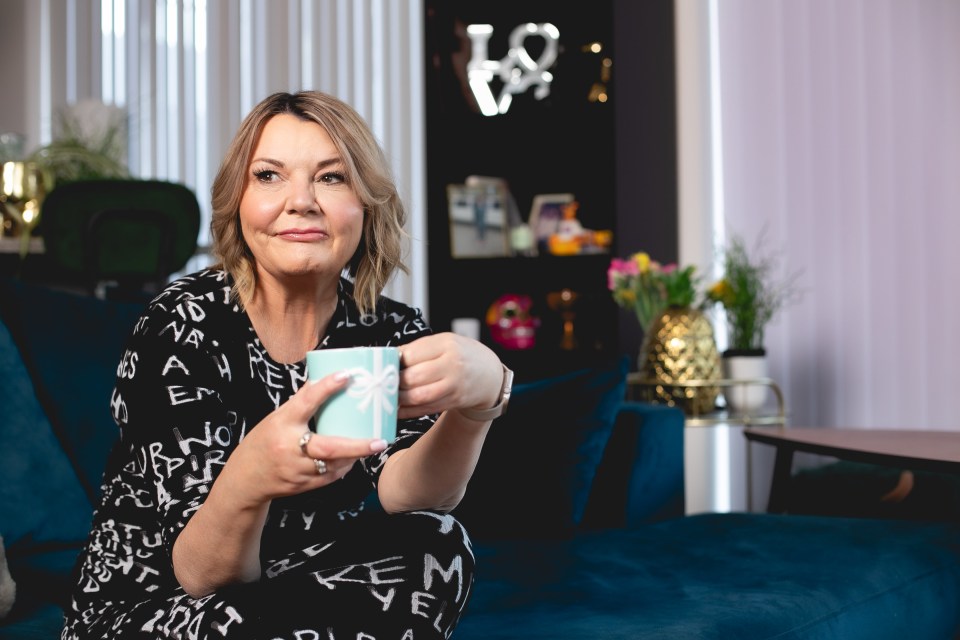WHEN her husband tragically died, Nicky Wake spiralled into a deep depression leaning on alcohol to make it through the day.
To the outside world she appeared like any other grieving wife, but behind closed doors the 54-year-old from Manchester was hiding a dark secret.
7
Nicky Wake’s drinking spiralled when her husband diedCredit: Christian Gould Blossom Agency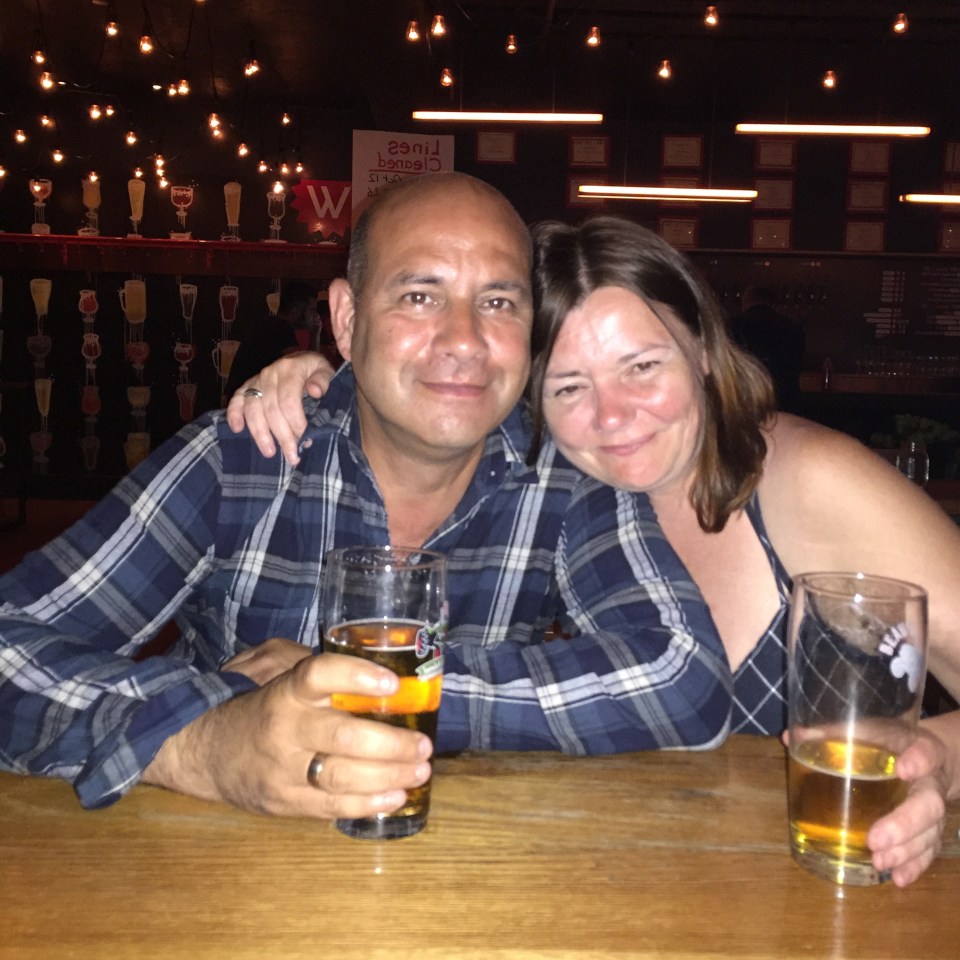
7
Her husband Andy had a sudden heart attack in 2017, aged 54, which led to a brain injuryCredit: supplied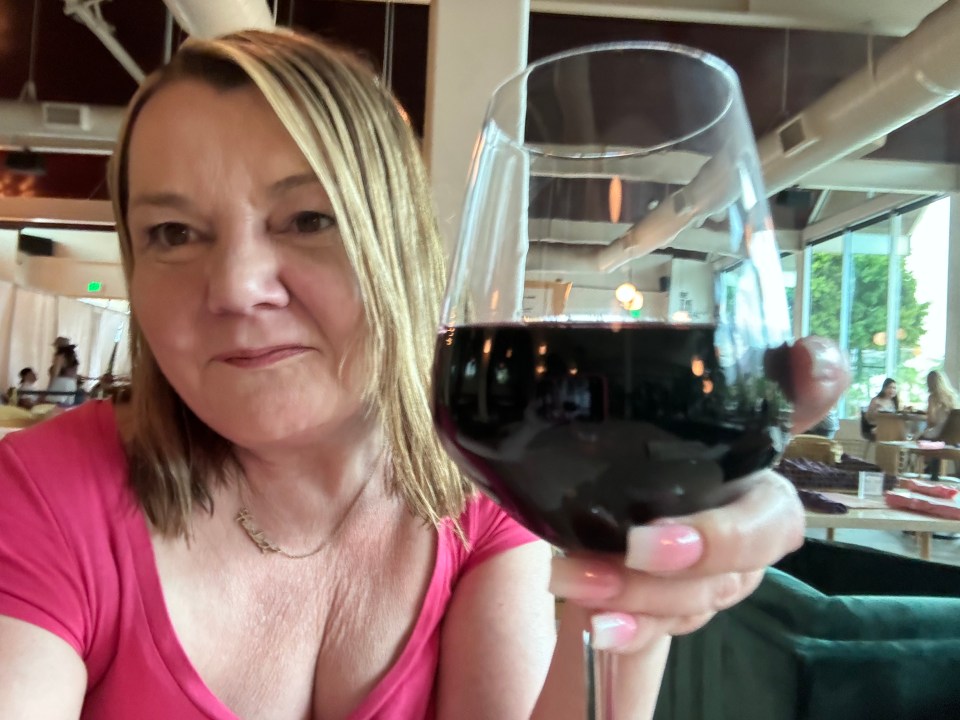
7
Nicky, 54, reveals she drank daily to cope with the shock and was a functioning alcoholicCredit: supplied
While Andy was cared for in a nursing home, Nicky was a functioning alcoholic, taking the couple’s son to school, running her businesses – never missing a meeting.
But even suffering a seizure wasn’t enough to stop her boozing, and after doctors in A&E told her she needed to stop drinking, Nicky bought wine on her way home.
Now, years after saying goodbye to Andy, Nicky tells Sun Health how her darkest days are behind her, thanks to a ‘miracle’ pill prescribed on the NHS.
‘Grief drove me to drink’
I walked past the nurses into intensive care, clutching my Diet Coke bottle.
I was visiting my seriously ill husband in hospital, and as I reached his bed, where he lay unresponsive in a coma, I opened the lid of my drink and took a sip.
But it wasn’t Diet Coke after all. It was a vodka mixer – my crutch, after I learned Andy would never be the same again.
From there, my drinking spiralled – but I wasn’t always like this.
I was a high-flying, successful businesswoman, an events planner and a designer of dating apps.
Life was good; I married Andy in 2004, two years after we met, and we had our son, Finn, in 2007.
I started drinking young, as many women did in the ‘ladette’ culture of the late 80s and 90s. But alcohol was never a problem for me; it was just fun.
Are you a grey zone drinker? 6 questions determine if you have a problem with alcohol & what to do before it gets worse
When Andy had a sudden heart attack in 2017, aged 54, it changed everything.
It was so sudden, and he was my soulmate.
The heart attack led to a brain injury, and he was kept alive in ICU, but there was really nothing anyone could do.
The consultant took me aside and said gently, “This will not have a happy ending”, and it was then that my drinking increased.
I was drinking daily to cope with the shock and grief. I had always been a heavy drinker up to this point, but never dependent.
For three years, Andy was cared for in a nursing home, as he needed specialist care.
Meanwhile, I was a functioning alcoholic.
It meant I was still able to do everything expected of me, while on the bottle.
I ploughed on, juggling running my businesses, getting my son to and from school and visiting Andy – always grabbing a bottle on the way home.
I’d fly business class and drink, go to meetings and drink. It was acceptable. But I never ever missed a meeting or got my son to school late. No one knew.
7
Andy was cared for in a nursing home for three yearsCredit: supplied
How does acamprosate work?
ACAMPROSATE (brand name Campral) is used to help prevent a relapse in people who have successfully achieved abstinence from alcohol, the NHS states.
It’s usually used in combination with counselling to reduce alcohol craving.
Acamprosate works by affecting levels of a chemical in the brain called gamma-amino-butyric acid (GABA).
GABA is thought to be partly responsible for inducing a craving for alcohol.
If you’re prescribed acamprosate, the course usually starts as soon as you begin withdrawal from alcohol and can last for up to six months.
‘Bad binge’
Then, in 2020, after a three-year slow decline, Andy passed away at the age of 57.
I had pre-grieved for three years as he slowly died, but losing him was still devastating, and I turned to the bottle even more.
After getting my son to school, I’d start the day with a bottle of wine at breakfast, drink another bottle throughout the day, then a third bottle in the evening.
By 2021, I noticed I could barely walk the length of my street without feeling unwell. But I ignored it.
Then in 2023, after a particularly bad binge, I woke in immense pain and felt so, so unwell. I knew I had to stop drinking, but I couldn’t get through the day without alcohol.
I was already taking mirtazapine for depression, so I took two instead of one.
Something happened – I thought I may have had a seizure – and I called a friend who took me to A&E.
I was drinking daily to cope with the shock and grief – I had only been a heavy drinker up until this point
At the hospital, doctors confirmed I’d had a seizure and blamed the mix of alcohol in my system and the double dose of a strong antidepressant.
I was kept in for three days and told I needed to stop drinking. I agreed, but bought wine on the way home.
Incredibly, during this time, I had a good relationship with my son.
7
Nicky checked herself into rehab where she did a 28-day detox, and was recommended acamprosate by a doctor to help her recoveryCredit: Christian Gould Blossom Agency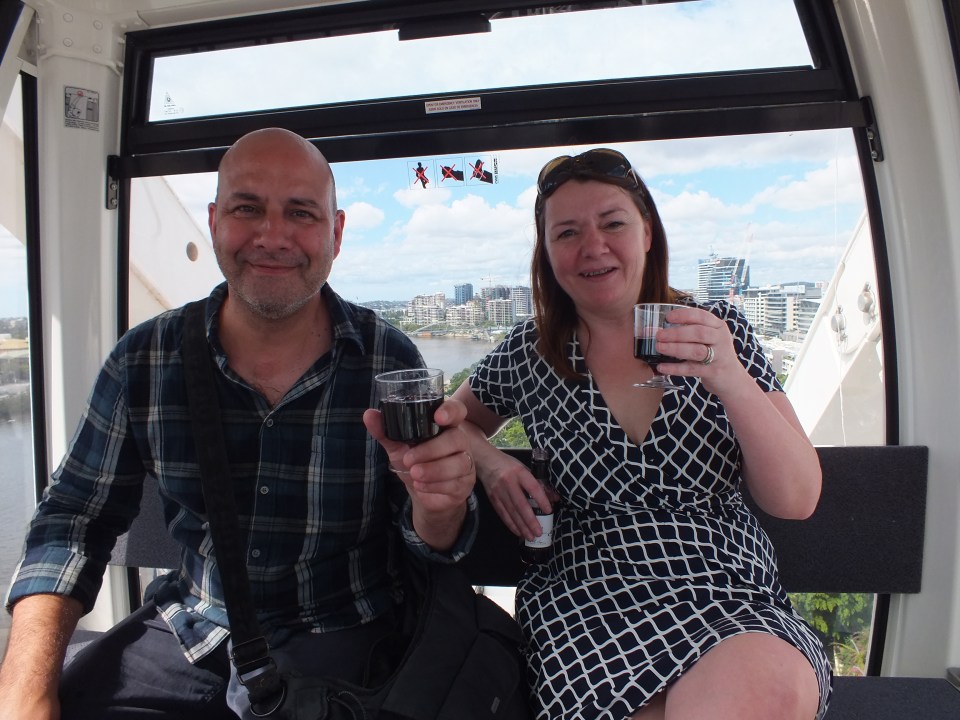
7
She says as soon as she took the miracle pill, she didn’t drink for weeks as it cut her cravingsCredit: supplied
But in November 2024, a day before my son’s 17th birthday, something in me changed. There was no lightbulb moment or rock bottom. I just felt generally dreadful and thought if I picked up one more glass of booze, I’d be dead.
I told my son I was checking myself into rehab. He hugged me and said, “That would be the best birthday present ever”.
Luckily, I had private healthcare, which covered my admission to The Priory, where I did a 28-day detox.
It included yoga, meditation, and hours of counselling. It was hard. But I felt cared for and looked after. It was there that a doctor recommended acamprosate to help my recovery.
Acamprosate is a medication for people with alcohol dependence that works by stabilising the brain chemistry, helping reduce cravings and maintain abstinence.
A doctor recommended acamprosate to help my recovery. Acamprosate is a medication for people with alcohol dependence that works by stabilising the brain chemistry, helping reduce cravings and maintain abstinence
I had no idea if it would work for me, but I decided to try, thinking I’d probably swing by a wine shop as I left The Priory.
But I didn’t. I went straight home. I didn’t drink the next day or the next.
Soon, weeks had passed. It was a miracle.
People on weight loss jabs talk about losing this ‘food noise’ once they start the medication, the relief that they are no longer constantly thinking about their next bite to eat.
And it was the same for me, only with alcohol.
I started with four doses a day, tapering to two, and then coming off at eight months – and I’m still sober.
The pills were prescribed in the Priory and by my GP once I left.
It is recommended by NICE, the NHS drug regulator, but only prescribed after a person is successfully withdrawn from alcohol and on a programme.
Sobriety meant that I was able to focus on the development and launch of an app called SoberLove.app, to help sober people date.
So many dates are about drinking, it’s hard to find a sober match.
And amazingly, when I celebrated my 54th birthday recently, there was no wine, no champagne and no beer. I left the party sober and joyful.
Acamprosate saved my life. Now, I plan to stay sober in Andy’s honour and for our son.
7
Nicky credits acamprosate for saving her life and reveals she aims to stay sober in Andy’s honourCredit: supplied
What to do if you think are an alcoholic
IF you’re struggling with alcohol addiction, the most important thing is to recognise the problem and seek support – You don’t have to face it alone.
Seek Professional Help
- GP or Doctor – A medical professional can assess your situation and provide advice on treatment options.
- Therapists or Counsellors – Talking to an addiction specialist can help address underlying causes and develop coping strategies.
- Rehab or Detox Programmes – If physical dependence is severe, medically supervised detox may be necessary.
Consider Support Groups
